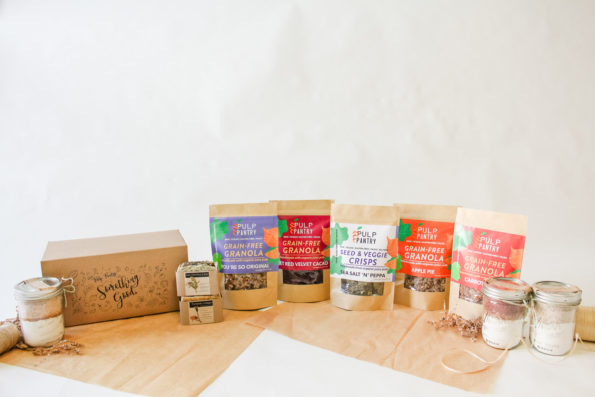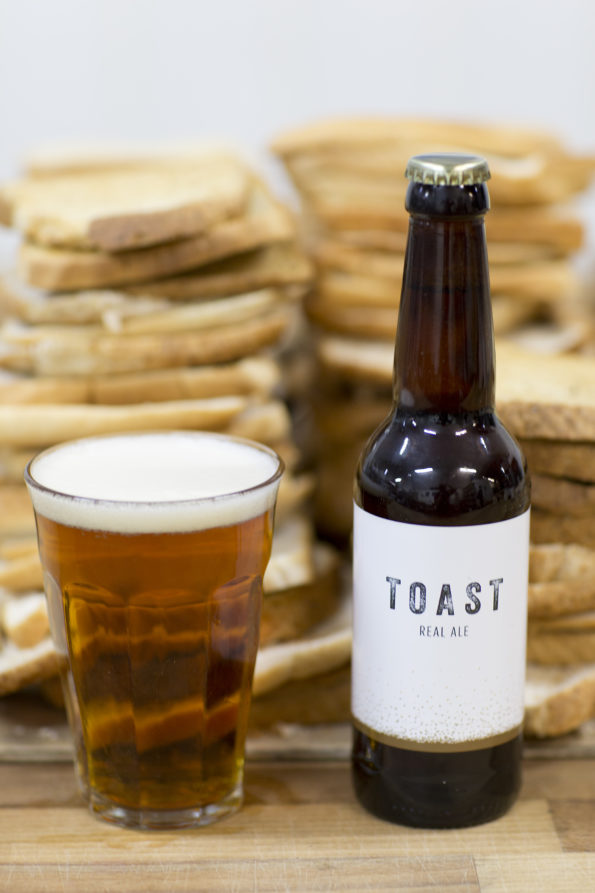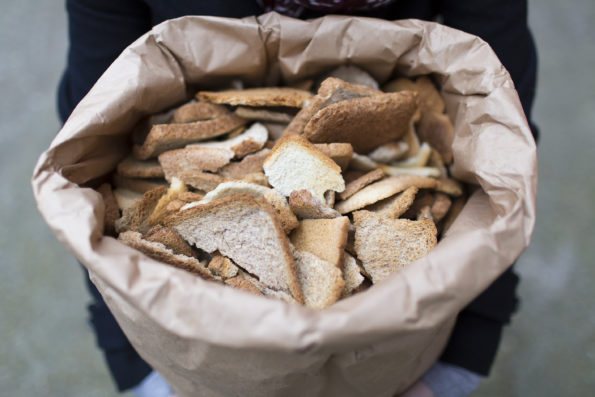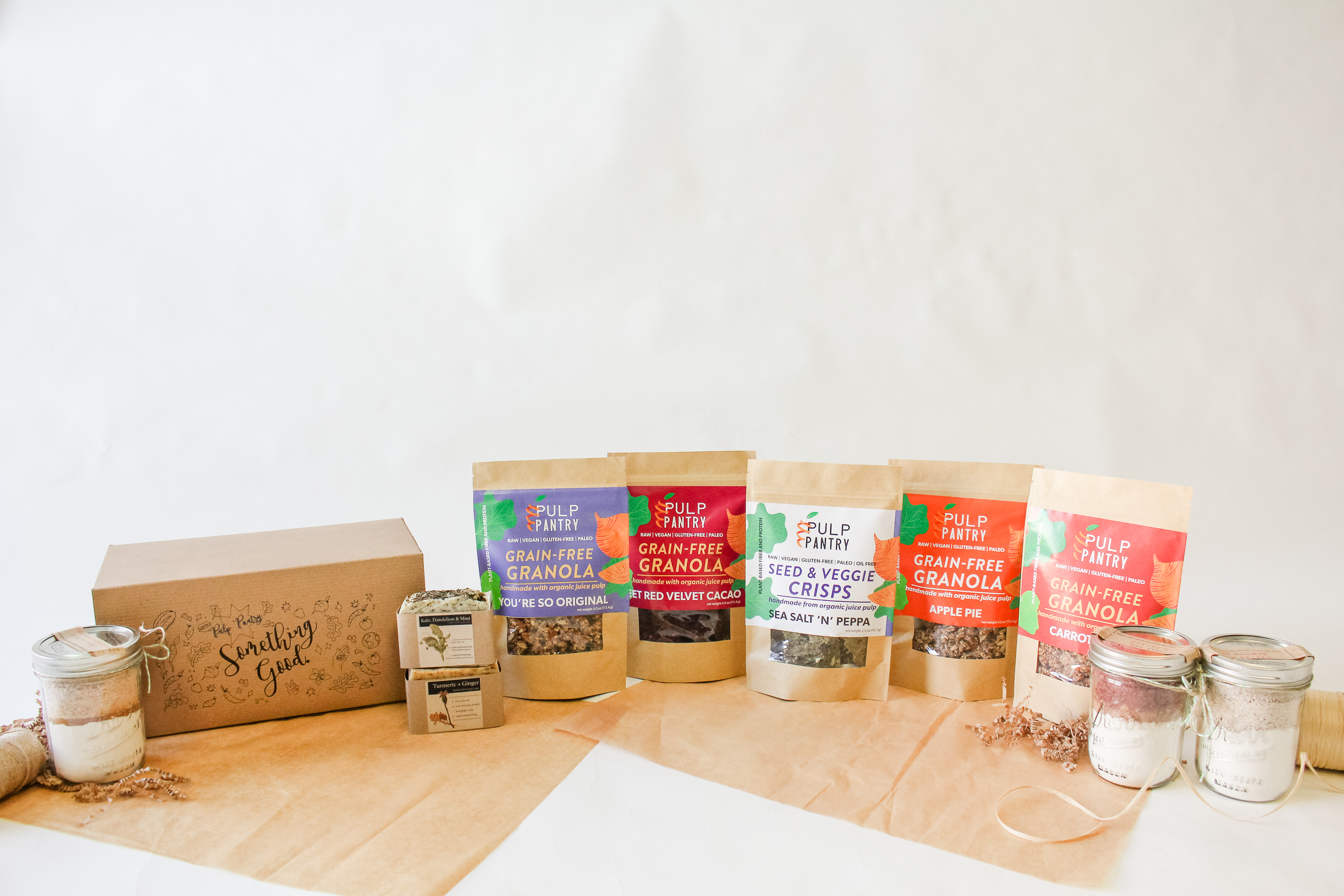Pulp Pantry and Toast Ale on repurposing waste.
As Published in Eartha on Feb 14, 2017.
The food waste statistics are out there. The magnitude of the situation is something most of us know and have read about. It’s time to move on from citing numbers and commenting on the scale of the issue to finding solutions and ways to address it. With many startups across the globe taking on the issue of food waste, we see a slew of creative initiatives that serve two purposes: addressing a specific waste issue and giving consumers an interesting product. Here are two start-up stories that inspire us to think beyond the obvious and eat pulp and drink bread if possible.
Pulp Pantry (California)
When most of us were thinking about jobs around graduation, Kaitlin Mogentale, founder of Pulp Pantry in California was already on her way to creating a food waste solution. Pulp Pantry repurposes juice pulp into tasty and healthy snacks. If you are wondering how much pulp waste is possible, get this: A single 16-ounce serving of cold pressed juice generates, on average, 3.5 pounds of pulp waste. In India, many startups are going the cold-pressed juice route. As they gain popularity, it might be a good time to address the issue of pulp waste before it becomes a concern.
From Pulp to Pulp Pantry
In her senior year, at the University of Southern California, Kaitlin worked in an urban garden associated with an elementary school. Observing the eating habits of children, she felt the need for healthy and affordable food products. The same semester, Kaitlin saw her friend juicing carrots and was shocked to see the amount of pulp left behind. Working on her food waste instincts, she used the pulp to bake cookies but kept thinking about the scale of waste from juiceries.
In class the next day, Kaitlin needed to ideate on a non-profit. The two incidents fell in place for her as she came up with the idea of making healthy snacks using leftover pulp.
Kaitlin got in touch with a few juiceries and began sourcing pulp from two of them. With help from her best friend Ashley Lukashevsky and feedback from her friends and professors, she started working on the concept and doing product trials.

Products With A Purpose
Kaitlin believes that it is important to repurpose pulp, but the resulting products must be aligned with the needs of the community and consumers. After graduating and setting up her venture, Kaitlin worked extensively on her products based on consumer feedback at farmers markets. Although her initial trials were with baked goods, she then began working on healthier versions of everyday foods, ensuring pulp remained the main ingredient.
Today, Pulp Pantry’s website boasts granolas, veggie crisps and DIY mixes, with pulp at the heart of these products. The granolas come in flavours like apple pie, carrot cinnamon spice and beet red velvet cacao among others. Kaitlin finds that granolas serve as a novel yet relatable format of introducing pulp in food. The crisps, on the other hand, are crunchy and savoury snacks made using green juice pulp.
Pulp Pantry sells DIY baking mixes that contain vegetable pulp or almond pulp. These mixes can be used as a flour substitute in baking. Sustainable soaps made in collaboration with No Tox Life are also available.
Kaitlin currently works with two juiceries and repurposes about 200 pounds of produce weekly. Her goal is to not only create a bigger impact, but to also build a brand that communicates the larger issues of food waste. She hopes that more people will approach their local juiceries to implement the Pulp Pantry concept.
Toast Ale (London)
If you are a beer enthusiast; here is some interesting information for you. A peek into the history of beer shows that beer brewing was associated with baking, and some of the earliest beer recipes included a form of barley bread. Why is this information relevant? Because this historical fact is being used today to ensure surplus bread does not go to waste. Toast Ale, a London based venture uses surplus bread to brew beer.

Image Credit: Tom Moggach
Toast Ale is founded by Tristram Stuart, food waste campaigner and author of The Bloodless Revolution and Waste:Uncovering The Global Scandal. He is also the founder of Feedback, a charitable organisation which addresses food waste at every stage from the farms to the supermarkets. I spoke to Louisa Ziane, Head of Communications at Toast Ale, to understand this interesting journey from bread to beer.
The Beginnings
During one of his visits to a sandwich manufacturer, Tristram found that around 13,000 slices of bread were getting wasted everyday. This is not waste because the bread is unfit for consumption, but because the crusts of each loaf are usually cut out. Around the same time, he visited a brewery in Belgium and saw they used surplus bread to brew beer. Tristram decided to use the same solution for addressing the waste of perfectly good bread. With help from the Brussels Beer Project, leftover bread sourced from a local bakery and a brewer in Hackney, they worked out the recipe for the first brew in September 2015. Toast Ale was launched in January 2016.

Image Credit: Tom Moggach
A toast to bread
Over the last year, Toast Ale has sold about 50,000 bottles and repurposed about 2 tonnes of bread. The profits from Toast Ale go to Feedback. Toast Ale now works with a large sandwich maker for sourcing surplus bread. They also work through collaborations with existing brewers. Toast Ale helps the brewers come up with a recipe that reflects their style, while working on the ‘Toast’ philosophy. They make sure that the bread is sourced from a bakery close to the brewer. A share of the profit from these collaborations go to Feedback.
Toast Ale is looking at increasing awareness to food waste through more collaborations and have completed work on their first international brew in Iceland. They are even open sourcing their recipe to get more people involved in turning bread waste into beer.
Food Waste Simplified
Food startups in India have given us solutions to our day to day food conundrums while providing us with healthy choices. When it comes to the issue of food waste, we are largely focused on redistributing the excess. In India, we actually do produce enough food to feed our population. But when 40 percent of this food is lost, often due to inadequate or poorly maintained storage facilities, the scale tips from abundance to deficiency. In terms of overall food waste—agricultural produce, poultry and milk—India ranks seventh, with the Russian Federation at the top of the list. Besides produced food we also face losses (about 15-20 percent) of cooked food at events and restaurants.
Food waste is not just an issue of raw materials and processed products. It also entails forms of waste that are sometimes less obvious. We need to look at the loss of nutritionally viable byproducts as well when we think of food waste. This will pave the way for innovative, affordable, nutritional edible products, which also suit our food preferences. Zero waste in any process is not possible, but what is possible is to make the best use of our resources to provide maximum value. Along the way, if we can add a few tasty and interesting products to our carts, then why not?
Similar posts which may interest you.
